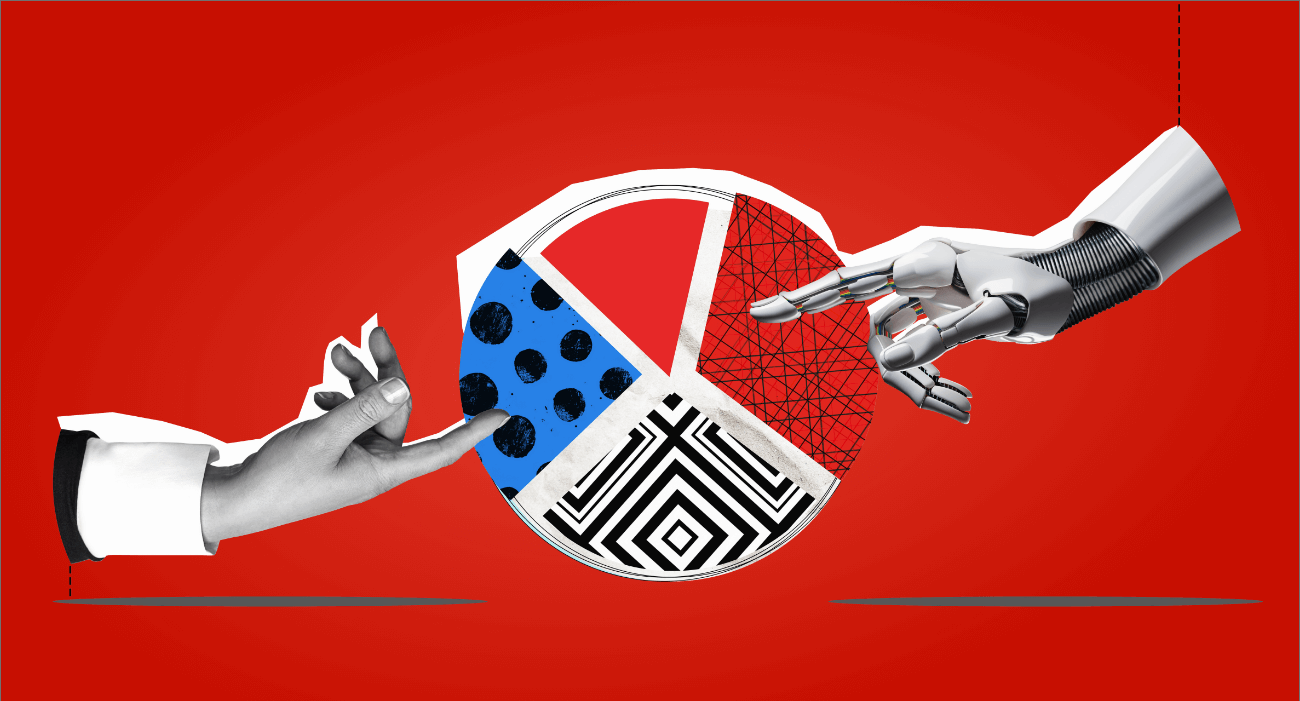
RECONCILING HUMAN CAPITAL AND ARTIFICIAL INTELLIGENCE: IS IT POSSIBLE?
by Antonella Del Torto, Chief People Officer Intarget
Generative AI is one of the most discussed technologies today. With its ability to automate repetitive tasks and streamline processes, GenAI is becoming an invaluable tool in marketing. However, achieving a harmonious integration between human capital and AI represents both a challenge and a critical opportunity for businesses.
Skill Development and Capabilities
To fully leverage the potential of AI, new skills and capabilities must be developed within the organization. First and foremost, methodological skills are essential: leaders must be able to design and manage complex change processes. Moreover, it is crucial to develop personal skills that allow leaders to not only manage relationships between collaborators but also between them and AI.
The key “Human Skills” to be developed can be summarized as follows:
- Digital Literacy: Understanding the basics of artificial intelligence and the fundamental principles of digital technologies is essential to interact effectively with AI systems.
- Critical Thinking and Problem Solving: These skills are crucial for interpreting AI-generated results, making informed decisions, and solving complex problems that technology alone cannot address.
- Creativity and Innovation: The ability to think outside the box and propose innovative solutions is irreplaceable and complementary to AI, which can help implement but not generate completely new ideas.
- Empathy and Emotional Intelligence: These skills are essential for navigating human relationships and maintaining a positive work environment, an area where AI cannot compete with human sensitivity.
- Change Management: The ability to guide and support teams through organizational and technological changes is crucial for the successful implementation of AI.
- Leadership and Collaboration: The ability to work in teams, lead workgroups, and facilitate collaboration between people and technologies is fundamental for a harmonious integration.
The Importance of Organizational Culture
Organizational culture plays a critical role in the acceptance and integration of AI. It is essential to foster a culture of tolerance towards failure, as errors or issues may arise, from which organizations can restart by consolidating and sharing the lessons learned. Leaders must carefully prepare and communicate how AI can support leaders in assessing risks and opportunities before making decisions.
Practical Applications of AI
AI applications are increasingly diverse and impact numerous business aspects. As previously mentioned, AI can significantly enhance decision-making processes, enabling leaders to navigate large amounts of data and providing predictions and suggestions on actions to take. This type of support saves resources and increases overall business efficiency, including automating repetitive, risky, or low-value tasks.
Conclusion
The integration of human capital and AI is a complex but essential process for the future of companies. The key to success lies in developing appropriate skills, promoting an organizational culture open to change, and effectively managing the interaction between humans and technology. Only by doing so will it be possible to fully harness the potential of AI while ensuring the value of human capital.
Intarget can support brands with projects on:
- Change management
- Training and support to enable resources to use AI
- Employer branding projects aimed at encouraging the adoption of new work methods
Contact us to learn more about how we can help you develop a culture of harmonious integration between human capital and artificial intelligence.






